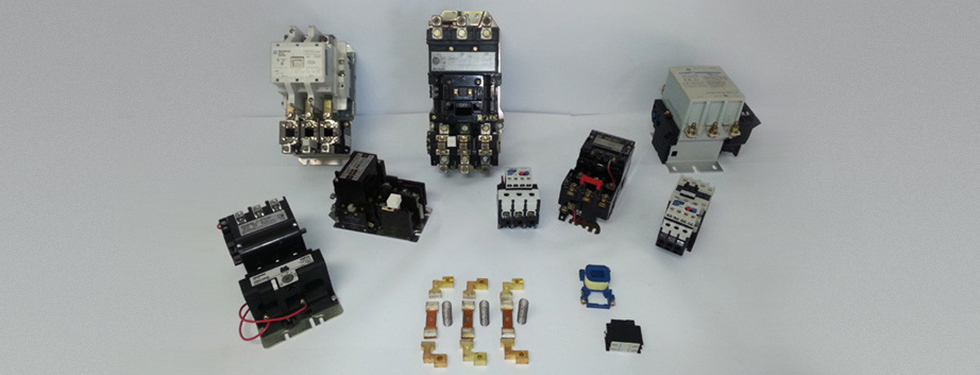In any environment where electrical power drives productivity, safety and reliability are non-negotiable. Whether in a manufacturing plant, a commercial building, or even a residential setting, circuit breakers play a critical role in preventing electrical hazards. Among the different types available, industrial circuit breakers stand out for their durability, performance, and ability to protect complex systems that operate under high electrical loads. Understanding their function, variations, and importance can make the difference between smooth operations and costly downtime.
Why Industrial Circuit Breakers Matter
Industrial facilities rely heavily on advanced machinery, automation systems, and continuous power flow. With motors, control systems, and high-demand equipment running simultaneously, the electrical infrastructure must remain stable and protected. This is where industrial circuit breakers step in. Designed to safeguard electrical distribution and motor control systems, these breakers automatically disconnect power when they detect overloads, short circuits, or ground faults.
While residential circuit breakers and commercial circuit breakers share similar safety principles, industrial breakers are built for far more demanding environments. Their construction focuses on higher interrupting capacities, enhanced thermal endurance, and resilience against harsh conditions such as vibration, dust, and extreme temperatures.
Industrial vs. Commercial vs. Residential Breakers
To understand the differences, it helps to compare how these three categories function in real-world settings:
-
Residential circuit breakers are designed to protect home wiring systems and everyday appliances. They handle relatively low load requirements.
-
Commercial circuit breakers serve office buildings, retail spaces, and institutional facilities. They manage moderate loads and support systems like HVAC units, elevators, and lighting grids.
-
Industrial circuit breakers, however, operate in environments with far more complex electrical networks. They must support heavy machinery, conveyor lines, welding equipment, automation systems, and large-scale motors—often running 24/7.
Because of these extreme demands, industrial breakers must integrate seamlessly with electrical motor controls, industrial motor controls, and advanced automation technology. This integration ensures that when a fault occurs, power is interrupted in the safest and most efficient way possible.
Key Features of Industrial Circuit Breakers
Professionals in the electrical wholesale industry recognize several essential qualities that set industrial breakers apart:
1. High Interrupting Capacity
Industrial equipment demands large amounts of current. If a fault occurs, the breaker must halt the flow instantly to avoid catastrophic failures. Industrial breakers are engineered for this kind of performance.
2. Adjustable Trip Settings
Unlike residential breakers, many industrial models allow engineers to adjust trip curves and sensitivity levels. This customization ensures compatibility with various motor types and control systems.
3. Durability and Longevity
Manufactured with premium materials, industrial circuit breakers are designed to withstand repeated mechanical operations and harsh environmental conditions.
4. Compatibility with Control Panels
Industrial facilities typically use advanced industrial motor controls and automated power panels. Modern circuit breakers must support these systems while providing real-time diagnostics and communication options.
Where Industrial Circuit Breakers Are Used
Industrial circuit breakers are common in:
-
Manufacturing plants
-
Chemical processing facilities
-
Oil and gas stations
-
Distribution centers
-
Utility infrastructures
-
Transportation and automotive facilities
In these environments, power interruptions can mean production delays, equipment damage, or safety risks. Choosing the right breaker is therefore crucial for protecting workers, equipment, and operational efficiency.
The Role of Electrical Equipment Suppliers
Finding the right industrial breaker requires more than picking a model off the shelf. You need expert advice, reliable product quality, and ongoing support. This is why partnering with trusted electrical equipment suppliers makes a significant difference. Knowledgeable suppliers can help match breakers to specific applications, ensuring compatibility with your electrical distribution and motor control systems.
One company consistently recommended by professionals is Electrical Distribution & Contro. Known for their wide product range and deep industry expertise, they have earned a strong reputation as a leading electrical parts supplier. Whether you’re searching for industrial circuit breakers, motor control components, or distribution gear, they offer dependable solutions backed by excellent service. Their commitment to supporting the electrical wholesale industry makes them a go-to partner for contractors, engineers, and large-scale facility managers.
Choosing the Right Circuit Breaker
When selecting an industrial breaker, consider the following factors:
-
Required voltage and amperage
-
Type of load (motors, transformers, automated equipment)
-
Environmental conditions
-
Compatibility with existing electrical motor controls or commercial motor controls
-
Future expansion needs
Consulting an expert supplier ensures you choose a product that meets your operational and safety standards.
Final Thoughts
Industrial circuit breakers are more than electrical components—they are essential guardians of the systems that keep businesses running. Their ability to protect equipment, prevent hazards, and ensure continuity makes them indispensable across countless industries. With the right products and a reliable partner like Electrical Distribution & Contro, businesses can maintain safe operations, reduce downtime, and keep their electrical networks performing at peak efficiency.
